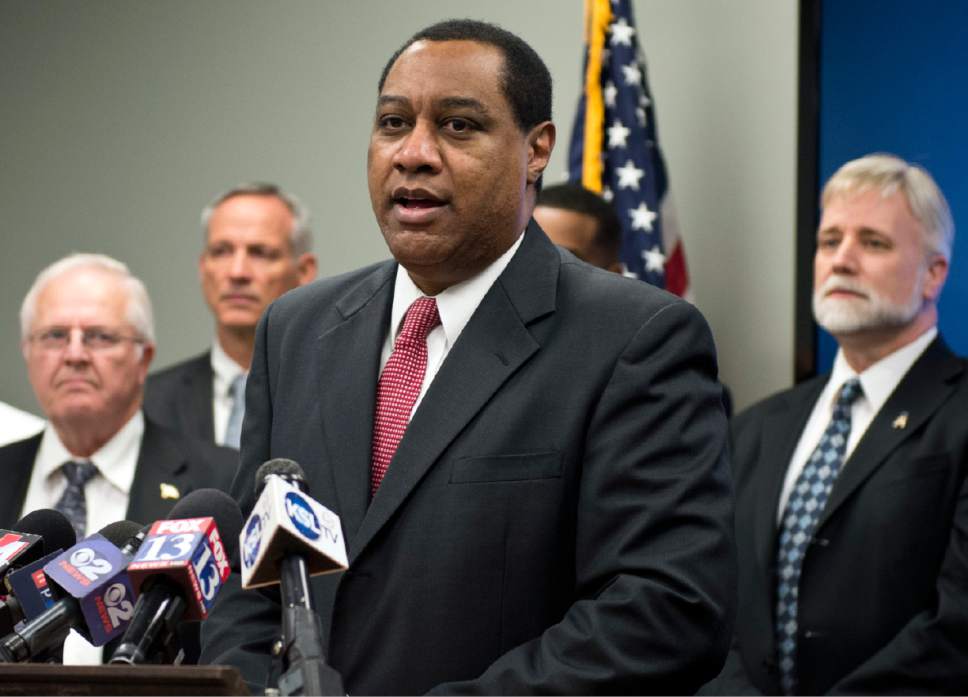This is an archived article that was published on sltrib.com in 2016, and information in the article may be outdated. It is provided only for personal research purposes and may not be reprinted.
The Utah Republican Party's challenge to the state's revamped election law apparently will proceed, but not without a stern scolding from the appeals court judges who said the party's attorney may be sanctioned for failing to meet deadlines and comply with court rules.
The party's brief in the case was due Sept. 27, but attorney Marcus Mumford was granted a one-month extension. Mumford, who at the time was involved in defending Ammon Bundy in his trial and eventual acquittal over the occupation of an Oregon wildlife refuge, asked to have until Jan. 31 to file his brief. He was given until Nov. 28.
Mumford missed that deadline and was given 10 business days to get his brief in or face the potential of having the GOP's appeal dismissed. The brief was filed Dec. 13, a day late; he asked the next day that the 10th Circuit Court of Appeals accept the late filing.
In addition to not being filed on time, the brief did not follow the format required by the appellate court and the judges said that, as of Friday, it still had not received the hard copies of the brief that were required under court rules to be received within two days.
Judges Robert Bacharach and Gregory Phillips wrote that they would accept the party's brief in the case, provided that they receive the hard copies no later than Dec. 20 and that it comply with the court's rules. Otherwise, the case may be dismissed by the court.
They also left open the possibility for discipline against Mumford.
"In light of the procedural issues described above, the appellant's counsel is advised that the judges assigned to decide this appeal on the merits may wish to address in greater depth counsel's noncompliance with the court's rules," the judges wrote. "The court's consideration of the matter may include whether to impose sanctions on counsel and/or whether to refer counsel to the court's attorney disciplinary panel."
The Republican Party is challenging the enactment of Senate Bill 54, which was created to allow candidates for office to gather signatures on a petition in order to get on the party's primary ballot instead of having to be chosen by delegates to the party's convention.
The party says the state is infringing on its First Amendment right to free association, that the law was intended to diminish the party's power, and that the signature thresholds are arbitrary and put an unfair burden on candidates in certain districts.
U.S. District Judge David Nuffer previously ruled that the party could not be forced to allow unaffiliated voters to cast ballots in the Republican primaries, but he upheld the remainder of the law.
Nuffer also had harsh words for Mumford in that case, for which the attorney repeatedly missed deadlines and was threateneda with sanctions. Nuffer ordered the GOP to hire an additional attorney to help make sure that deadlines were met.
Twitter: @RobertGehrke



